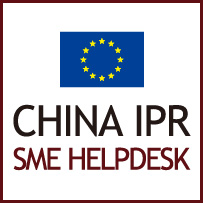How to spot and remove counterfeit goods from e-commerce sites in China
 China’s booming online retail market has attracted many European companies to sell their products through popular Internet selling platforms (ISPs). Unfortunately these ISPs are also used by unscrupulous businesses selling counterfeit goods that infringe intellectual property rights (IPR).
China’s booming online retail market has attracted many European companies to sell their products through popular Internet selling platforms (ISPs). Unfortunately these ISPs are also used by unscrupulous businesses selling counterfeit goods that infringe intellectual property rights (IPR).
The China IPR SME Helpdesk recommends that manufacturers of intermediate or consumer goods for the Chinese market safeguard their businesses by adopting a three-step strategy: 1) by registering rights; 2) by monitoring e-commerce sites; and, if necessary, 3) requesting take-downs of counterfeit or infringing goods. In the following article they describe best practices for monitoring and take-down for China’s two most popular ISPs – Alibaba and Taobao.
How to spot infringing content
In order to stop infringement as early as possible it is recommended that you proactively monitor the
Internet for counterfeits. The most common infringements encountered on e-commerce sites include trademark violation, sale of counterfeit products and copyright infringement (advertisements and other images used to promote counterfeit products).
Tips on how to find infringing products
- Search for names which are identical or similar to your brand or product name.
- Search for your brand or product name in Chinese. Chinese consumers like to translate brand names into Chinese, either as a phonetic translation or by translating the meaning. Where possible ask a Chinese colleague or use a translation tool.
- You may find more results by conducting your search through a Chinese search engine.
- Search for items in the same category as your product.
- Use you product name plus your home country as key search terms.
How to spot a suspicious sale
The following can often be indicators of a counterfeit product or unlicensed sale:
- The listing was made by an individual or company who is not involved in your official distribution channel in China.
- There are a large number of listings from one vendor.
- The vendor is offering the product lower than the market price.
- The product is listed several times with a wide variation between prices for each listing.
- The vendor has a large number of units available for sale. Please note that if a vendor offers only one or few a units of a product, it may not constitute an infringement as it is legal to sell ‘second hand’ products or to re-sell original new products.
Tools for requesting takedowns
Both Alibaba and Taobao offer tools for removing infringing products from sale. It is wise for a business to familiarise itself with these, particularly as they differ to Western ISP equivalents, such as eBay’s VeRO.
Alibaba
Alibaba’s IPR protection policy expressly prohibits “listings of counterfeits, replicas, or other unauthorised items.” Furthermore, it stipulates that the “listings of offers to sell or purchase counterfeits, replicas or other unauthorised items shall be subject to removal by Alibaba.com.” In case of infringement Alibaba may:
- Remove the listing upon receipt of a take-down notice from the IPR holder;
- Notify members responsible for listings, subject to an IP infringement claim; and
- Suspend or terminate the membership of a user who has received multiple IP infringement claims.
AliProtect®: File claims and request take-downs
AliProtect® provides an efficient and transparent channel for IPR holders to file claims and request take-down of allegedly infringing listings, which is available in English. In order to proceed you need to complete a free registration and accept the terms and conditions. In addition, you need to accept a disclaimer which states the right holder will, “hold Alibaba.com harmless from all claims, causes of action, damages and judgements arising out of any removal of product listings pursuant to intellectual property (IP) infringement claims.”
Necessary documents
Three sets of documents must be submitted to AliProtect® for IP infringement claims:
- Proof of identity: For companies this includes a business incorporation certificate or certificate of incorporation. For individuals, identification documents such as a passport or national identification card are required.
- Proof of IPR ownership: Including patent registration certificate, trademark registration certificate or copyright registration certificate (please note an application receipt is insufficient).
- Identification of the alleged infringer and details of the listing which you wish to have removed: It is best to include clickable hyperlinks.
Timeline and counter-notification system
Alibaba evaluates IP infringement claims filed via AliProtect® promptly and deletes listings on a weekly basis. Often, there will be more than one infringing listing and Alibaba admits a maximum of 200 listings per infringement complaint against a single vendor. Before the listing can be removed the vendor will be notified of the complaint through the online system and will have the opportunity to respond to the claim. The vendor will also receive the IPR holder’s contact information to facilitate direct conflict resolution. There is no charge for registration and submission of IPR infringement claims.
After receiving a complaint the alleged infringer must (assuming no objection):
- Delete the link and clear up other product information involving IPR on the relevant webpage; and
- Submit a counter notification in the system (note: if no counter-notification is received within three days after receipt of notice, the system will automatically delete the listing under complaint).
The complainant must take the following steps after receiving any counter-notification:
- If the complainant accepts the counter-notification, they must confirm so in the system.
- If the complainant does not accept the counter-notification, they must submit a dispute handling request in the system.
- If the complainant does not respond, the listing under complaint will be reinstated until the complainant responds.
Taobao
Taobao is the original business-to-consumer arm of the Alibaba group, aimed at domestic users. It operates exclusively in Chinese and only accepts IPR registered in China for take-down notices. It has a sophisticated complaint system which led to 87 million listings being removed and 1 million users being punished in 2012.
Although Taobao’s online complaint system is available only in Chinese it does provide the option of filing an IPR infringement complaint in English via a template email together with the required proof of identify and IPR ownership. Additionally, Taobao provides an English step-by-step guide to using the online system. There is no charge for registration and submission of IPR infringement claims.
Necessary documents
Identification:
- Individuals should provide a copy of valid identification (e.g. passport).
- Enterprises should provide a copy of a valid business licence or incorporation certificate.
- Agents should provide an additional authorisation letter.
Supporting documents:
- Proof of copyright (worldwide) or Chinese registered trademark or patent (invention patent, utility model, design patent).
- All documents must be in electronic format and must be submitted online.
Timeline and counter notification system
Before submitting any take-down notices, you must register as a user on the website (Taobao provides a step-by-step English guide to registering). Once an initial complaint is made, Taobao may take up to seven working days to process and remove the disputed listing from the website. However, this time may be reduced to three to five working days once a track record of submitting accurate take-down notices has been established.
Counter-notification must be submitted by the vendor within three days of the listing being taken down. The IPR holder has three days to respond or the listing will be reinstated. If the complainant does not accept the counter-notification a dispute handling request can be submitted via the online system.
The importance of frequent monitoring
Although issuing a take-down notice is a relatively quick process it is one which may need to be completed frequently depending on the number of counterfeits on the market. As well as searching the sites mentioned above you might also want to look at other popular e-commerce sites in case your IP is being infringed elsewhere. In the case of widespread counterfeiting it may be possible to take further legal action against the infringer, so it is a good idea to save evidence of listings in the form of product pages.
The strategy of monitoring and taking appropriate action on ecommerce sites should be a crucial part of any long-term business strategy for companies offering products with international appeal. Therefore, it is important to schedule the responsibility of search and monitoring tasks as a regular work duty – a simple task that carries great benefits in the long run.
The China IPR SME Helpdesk is a European Union co-funded project that provides free, practical, business advice relating to China IPR to European SMEs. To learn about any aspect of intellectual property rights in China, visit our online portal at www.china-iprhelpdesk.eu. For free expert advice on China IPR for your business, e-mail your questions to: question@china-iprhelpdesk.eu. You will receive a reply from one of the Helpdesk experts within three working days.



Recent Comments